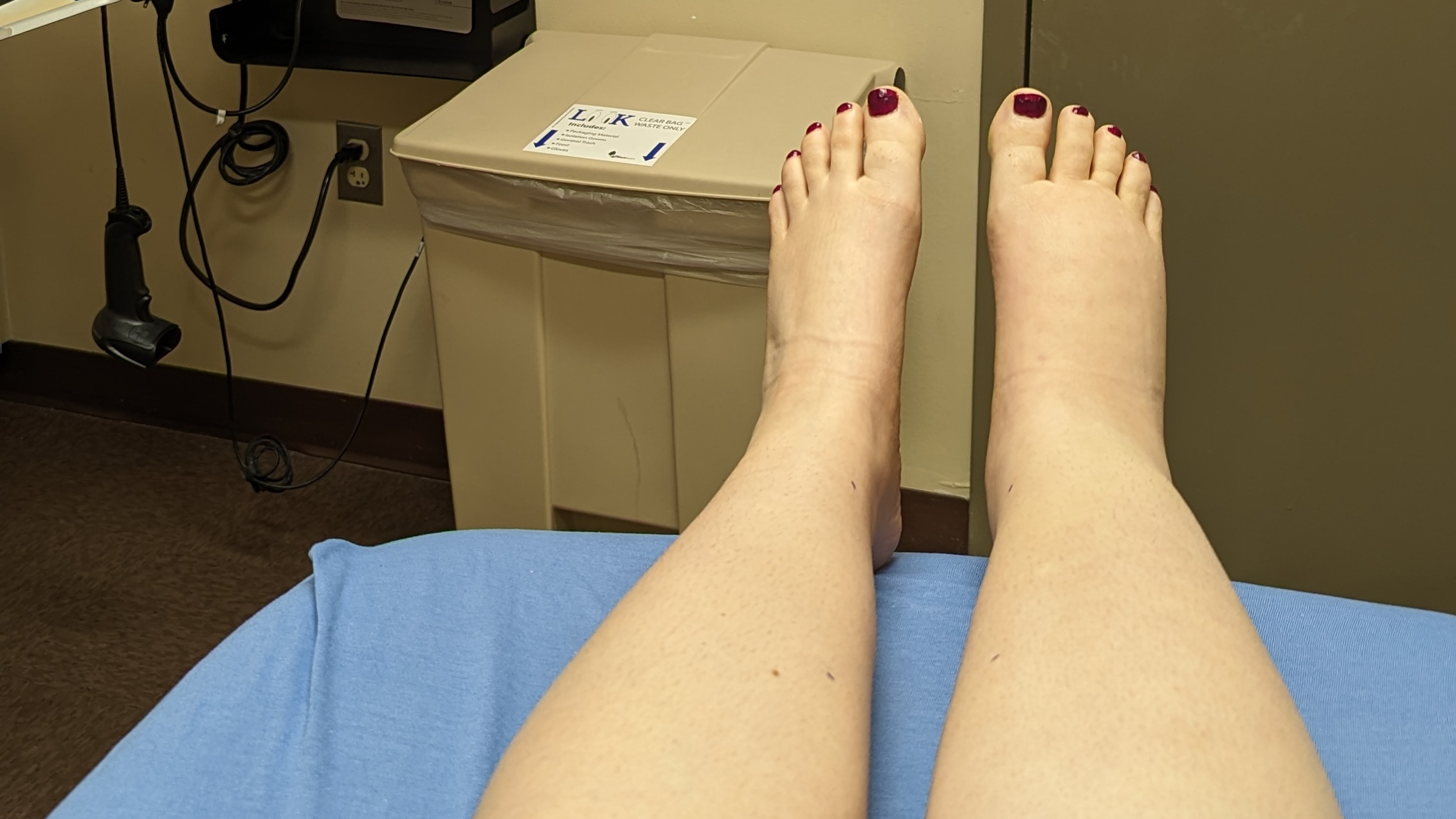When living with a chronic medical condition, we learn to expect the need for special precautions in almost every situation; whether it’s traveling by plane, taking a dip in the hot tub, or getting a tattoo, we have to be mindful of how our bodies will be affected. Our lymphatic systems are compromised, after all, so it makes sense that we need to make a couple compromises and adjustments as well in order to stay healthy.
But what should you expect from your lymphedema when you’re expecting? I’ve gotten a lot of emails from readers with questions about pregnancy and lymphedema: will their lymphedema worsen during pregnancy? Will any increased swelling be permanent? What are the odds of passing on lymphedema to their baby? Pregnant women are prone to swelling in their legs and feet even without a preexisting condition like lymphedema, so how can a lymphie mama-to-be keep her swelling under control??
I can’t speak from experience so I don’t readily have answers to these questions—in fact, I’ve wondered these same things myself when thinking about whether or not I’d like a family of my own someday. It’s completely valid to have these sorts of fears and concerns, but don’t let them hold you hostage! Doing some research and talking to healthcare professionals are incredibly empowering and effective ways to figure out your treatment options and what you can expect during pregnancy.
I did a little research and compiled a general list of some things you can do to help keep your lymphedema under control during pregnancy. Because our community thrives on sharing our stories with one another, you are encouraged to share your own tips, experiences, and questions in the comments section below!
Managing Lymphedema During Pregnancy
- Check in with your lymphedema therapist. First and foremost, schedule an appointment with your lymphedema therapist to get their professional opinion on how your lymphedema will be affected by the physical changes and stresses of pregnancy, and to discuss any recommended changes to your treatment and self-care routines. Be sure to establish communication between your therapist and your obstetrician, too; it will be essential that they work together on some level so that you are able to monitor not only your baby’s health, but also your own!
- Recruit some help. As your belly gets bigger you may have some difficulty reaching your legs and feet, and your self-care routine can become more of a challenge to do on your own. Whether it’s performing manual lymph drainage or donning your compression garments, don’t be afraid to ask for help! In fact, it’s recommended to train your partner or another family member in lymphedema care early on in your pregnancy, so they’ll be prepared to help you as you get further along.
- Keep up with your compression. Unless your doctor instructs otherwise, maintain your compression routine throughout your pregnancy to help control your swelling. Be sure to check with your therapist on which level of compression is appropriate as your pregnancy progresses; because you may need to modify your compression a bit in order to accommodate your changing body, bandaging may be a better option as bandages allow for adjustments in size and amount of compression. (This is definitely a place where your helper will come in handy!)
- Perform manual lymph drainage massages. Doing these drainage massages on a regular basis are beneficial in promoting lymph flow, although you may want to check in with your lymphedema therapist about any modifications to your abdominal breathing and massage techniques as you get further along in your pregnancy.
- Practice gentle exercises. Get your body moving through exercises such as walking, gentle yoga, or water exercises. As always, check with your doctor beforehand for clearance before beginning any sort of exercise routine, and be mindful of your physical limitations.
- Stay elevated. Take some time to elevate your legs, even if that means going on bed rest. With your feet and legs elevated, gravity can do its thing and really help in reducing your swelling!
- Be extra cautious about infections. Cellulitis infections are always a danger when living with lymphedema, but when you’re pregnant, an untreated infection creates a threat to both you and your baby. Be sure to talk about the risks of infection with your doctor as well as any danger signs to look out for, and set up a preparedness strategy with emergency antibiotics on hand—just in case!
- Keep all of your prenatal visits. It’s very important to stay consistent with your appointments so as to ensure things are progressing as they should be, for both you and your baby! Having lymphedema can create an added risk for complications to develop: the extra compression could place excess strain on your heart and other body systems and aggravate symptoms of pregnancy complications such as preeclampsia. Immediately consult your doctor should any symptoms develop, and also notify your lymphedema therapist so that any modifications to your bandaging and compression routines can be made.
- Read about the experiences of others. Doing a quick Google search will help you find message boards or blogs with posts about peoples’ experiences managing their lymphedema during pregnancy. (For example, Monique at Lymphedema Runner has written about both of her pregnancies in beautiful, honest detail.) Reading their stories can help you better understand what it’s like and what sort of things you can expect for yourself—you may even be able to reach out to them should you have any specific questions!
For more information, see LymphNotes.com’s article “Pregnancy and Primary Lymphedema.”
Everybody is different, and every case of lymphedema is a little different, too! When the time comes, the safest thing to do is to speak with a doctor who can asses your case of lymphedema and offer their professional opinion regarding your options and any potential risks. That way you can be fully prepared and have a healthy pregnancy not just for you and your baby, but for your lymphatic system, too!




Leave a Reply